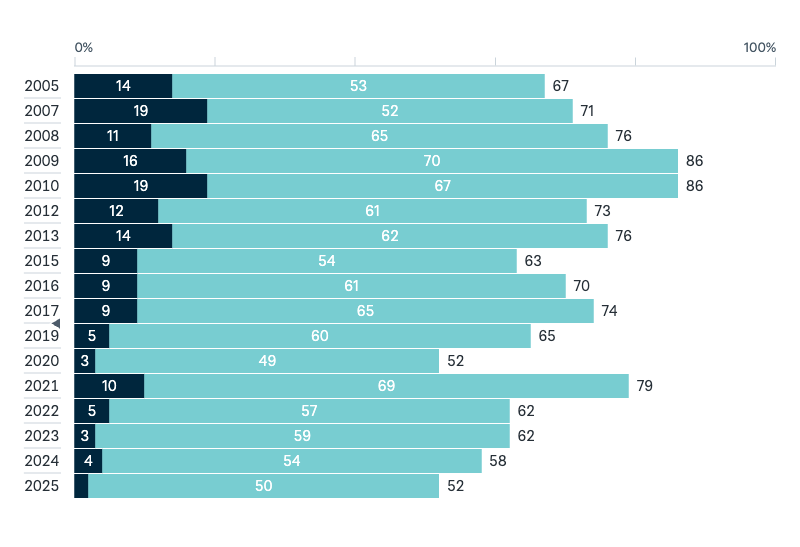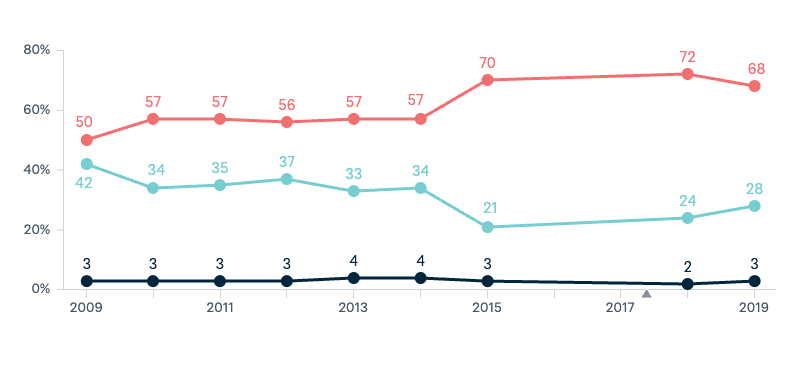Economy and trade
47 questions match this theme. View the archive for more.
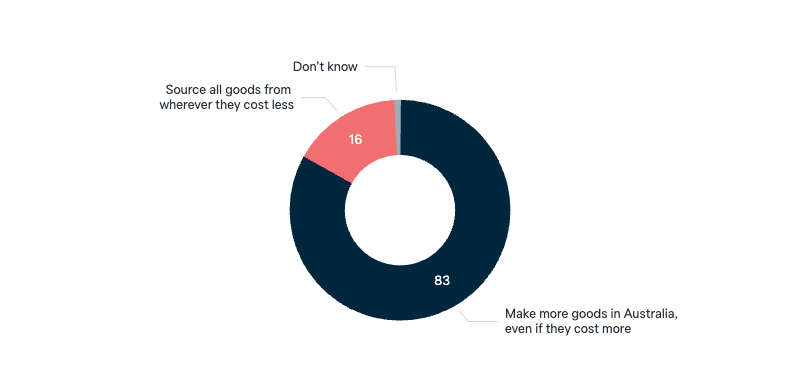
Economy and trade
Manufacturing in Australia
Thinking about how Australia sources and makes the goods it needs.
Asked in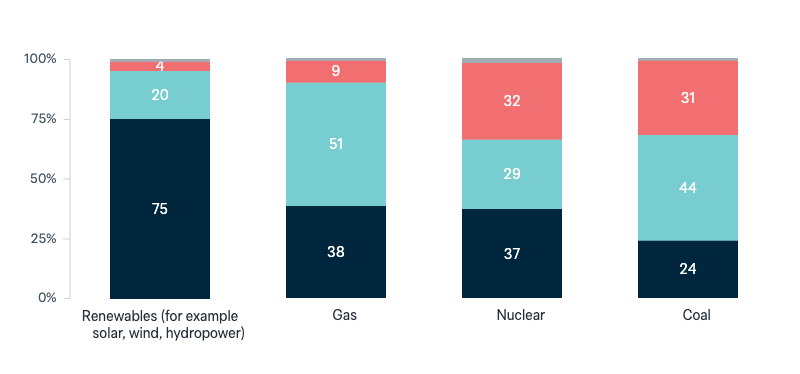
Climate change and energy
Australia’s 2050 energy mix
Thinking again about the aim to bring Australia’s national greenhouse gas emissions down to net zero by 2050.
Asked in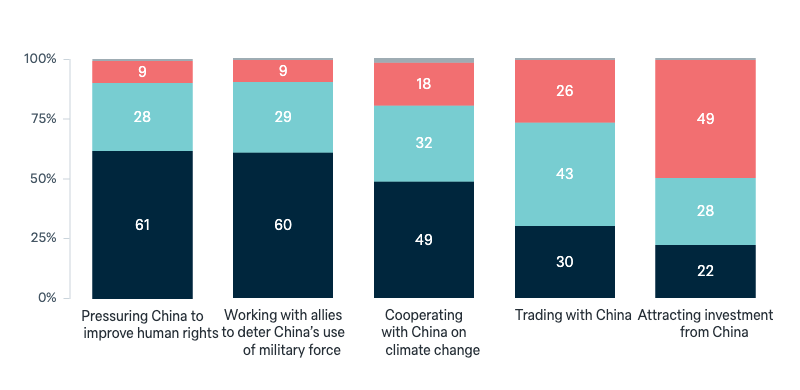
Relations in the Indo-Pacific
China: Australian policy settings
For each of the following, please indicate whether you think Australia should be doing more, less, or about the same as now:
Asked in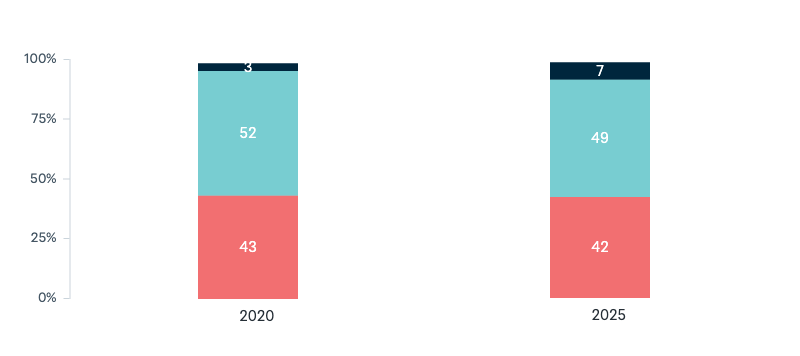
Economy and trade
International students in Australia
Thinking about the numbers of international students enrolled at Australian universities, do you think the numbers are:
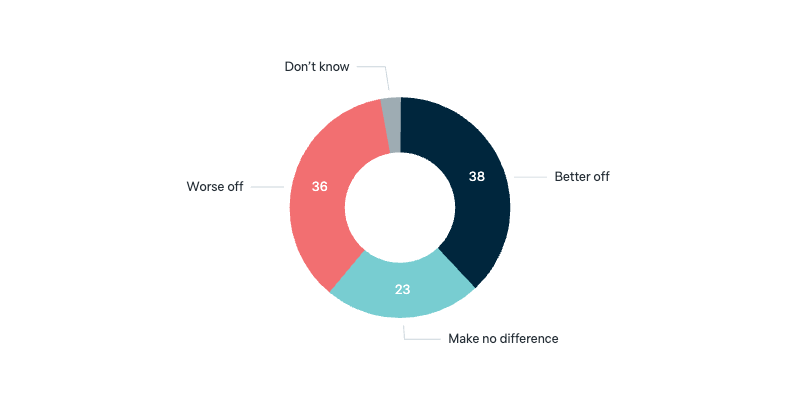
Climate change and energy
Net zero: economic opportunity or cost
Both major political parties in Australia have committed to bringing Australia’s national greenhouse gas emissions down to net zero by 2050. This presents both costs and opportunities for the economy.
Asked in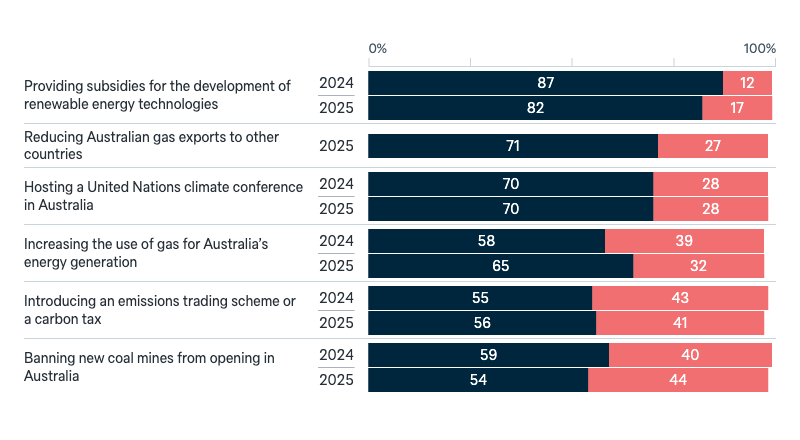
Climate change and energy
Potential federal government policies on climate change
Would you support or oppose the following federal government policies?
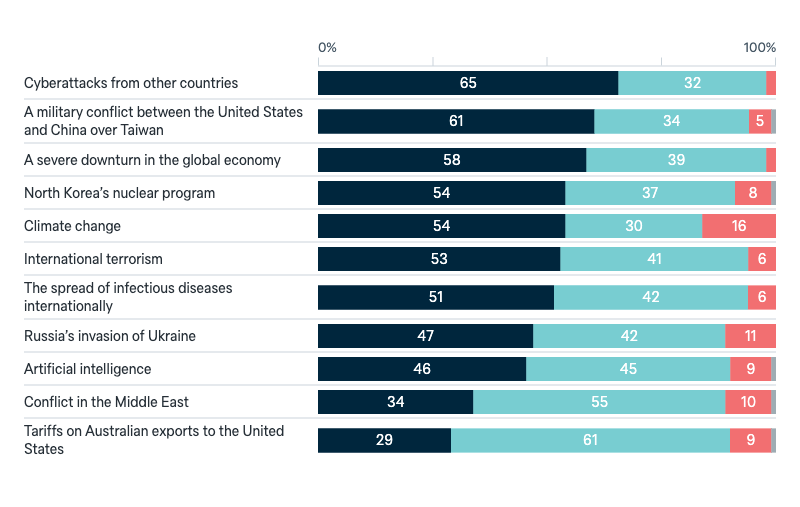
Safety and threats
Threats to Australia’s vital interests
Do you see the following possible threat as a critical threat, an important but not critical threat, or not an important threat to Australia’s vital interests in the next ten years?
Questions from previous years
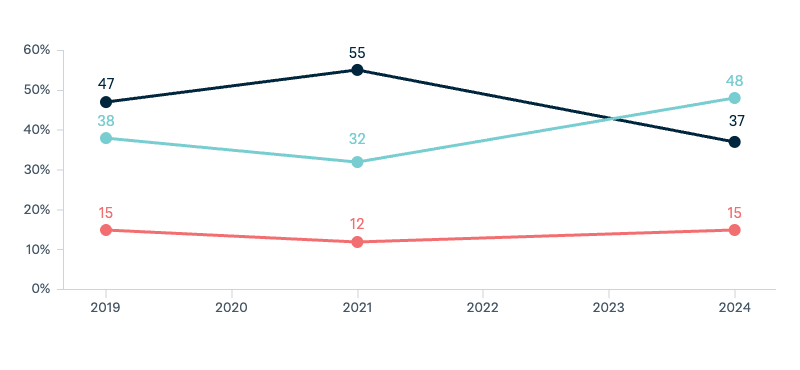
Climate change and energy
Energy policy priorities
Now thinking about Australia’s energy policy, including electricity and gas. Which one of the following goals do you personally think should be the main priority for the federal government?
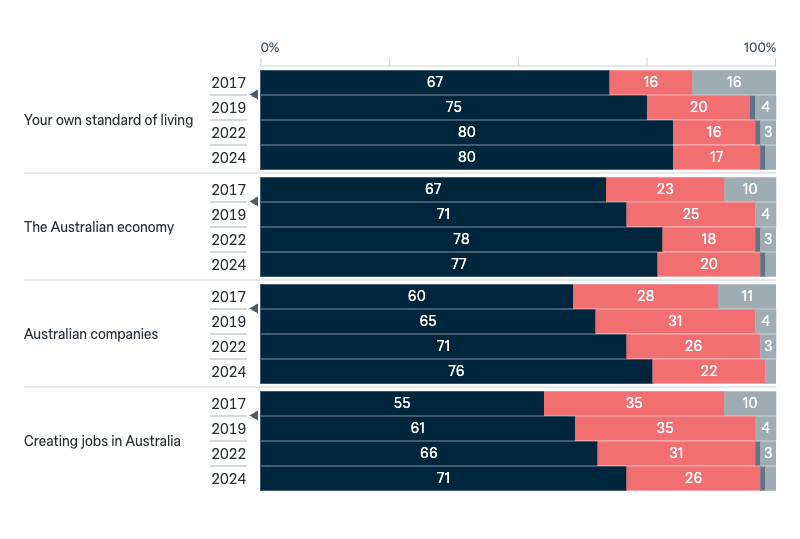
Economy and trade
Support for free trade
Overall, do you personally think free trade is good or bad for each of the following:
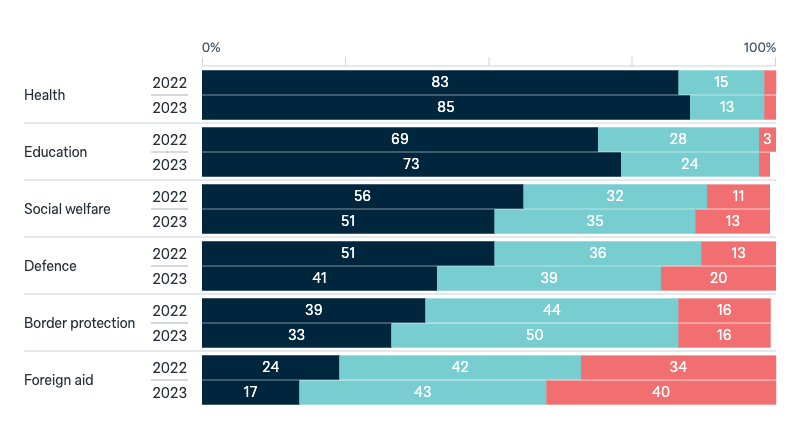
Australian government performance
Budget priorities
Now about the federal budget. If you were making up the budget for the federal government this year, would you personally increase spending, decrease spending or keep spending about the same for:
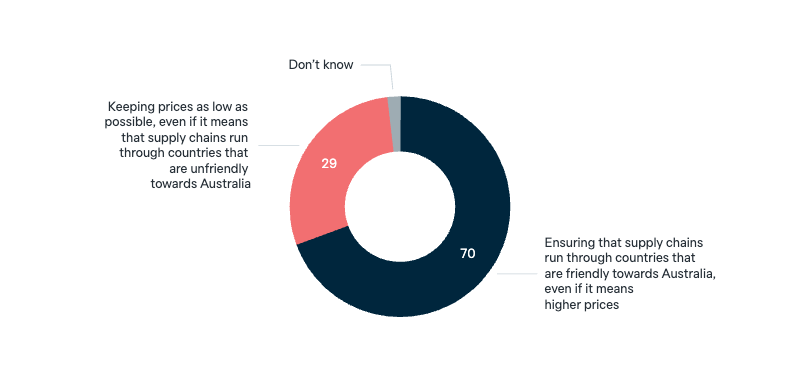
Economy and trade
Supply chains
Now thinking about global trade and the supply chains through which Australia sources goods from other countries. In your opinion, which of the following statements should be a higher priority for Australia?
Asked in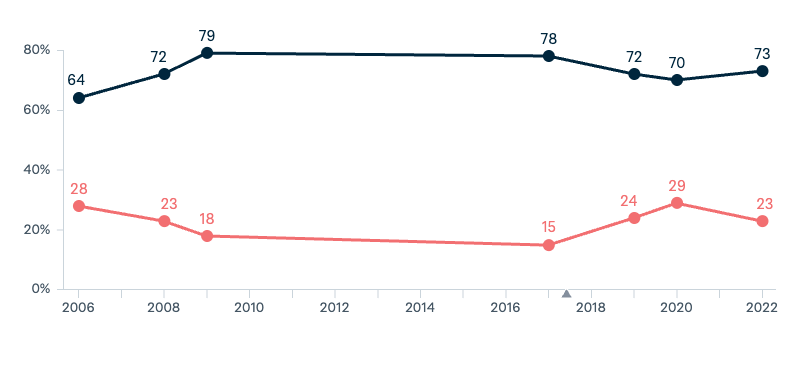
Economy and trade
Globalisation
Now on globalisation. Do you believe that globalisation, especially the increasing connections of our economy with others around the world, is mostly good or mostly bad for Australia?
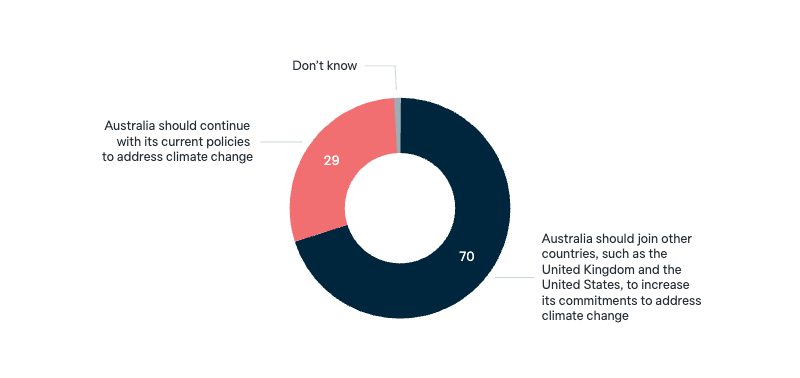
Climate change and energy
Australia’s approach to international climate change negotiations
In the leadup to the 2021 United Nations Climate Change Conference in Glasgow, which one of the following two statements most closely represents your own view of the approach the Australian government should take in international climate change negotiations?
Asked in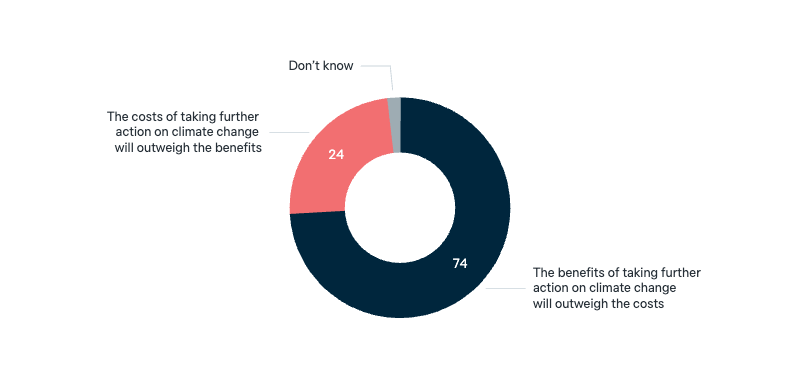
Climate change and energy
Costs and benefits of climate change action
Which statement is closest to your personal view on further action on climate change?
Asked in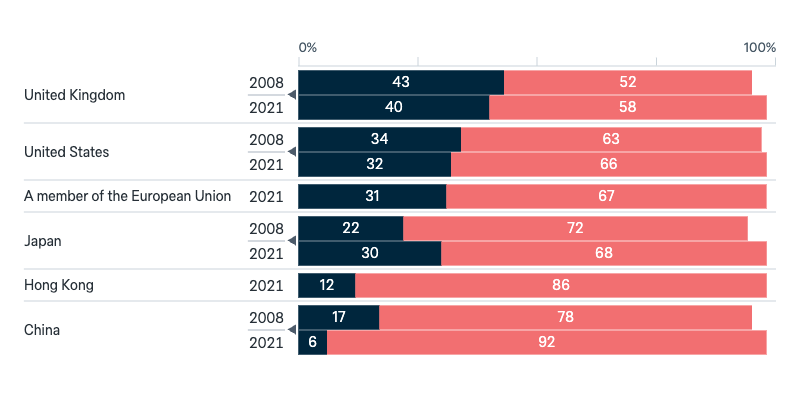
Economy and trade
Foreign investment by country
Are you in favour or opposed to a company, bank or investment fund controlled by the following foreign governments buying a controlling stake in a major Australian company?
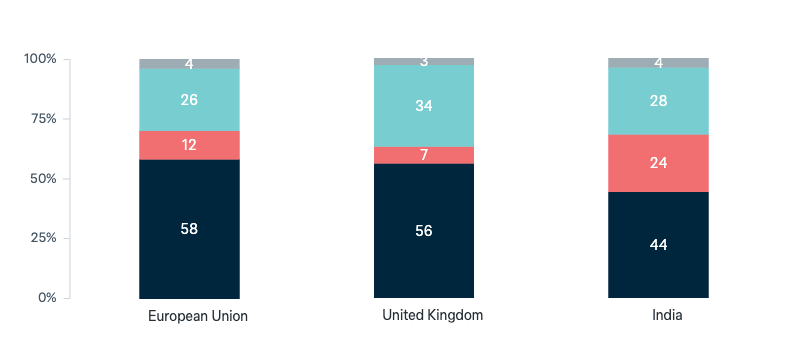
Economy and trade
Australia’s free trade negotiations
Thinking now about Australia’s approach to negotiating free trade agreements. On balance, do you think signing a free trade agreement with the following would be good or bad for Australia, or would it make no difference?
Asked in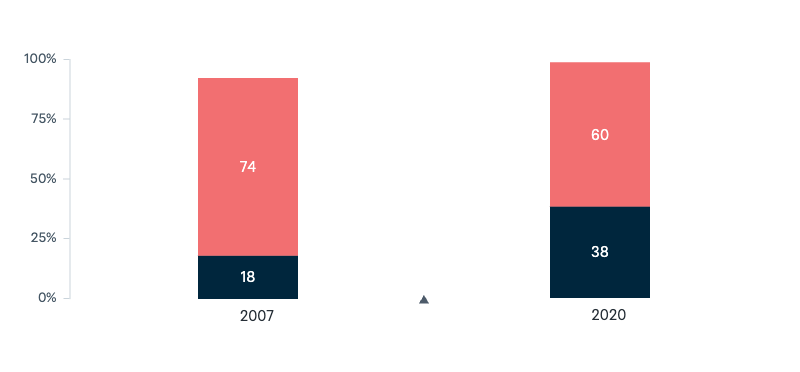
Australian foreign policy
Australian values and foreign policy
In dealing with international problems, there can sometimes be a clash between Australia’s economic interests and Australia’s democratic values. When that happens, should interests or values be considered more important?

China
China’s economic future
Now about China. Please tell me which statement most closely matches your own opinion about China’s economy in the next five years.
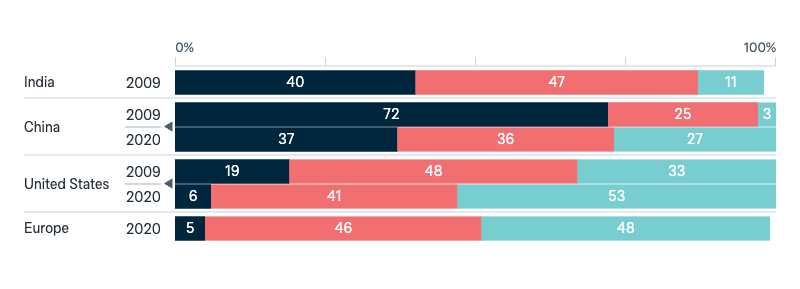
Covid-19 pandemic
Global power in the post-crisis period
The world is currently going through a severe health and economic crisis. When the world recovers from this crisis do you think each of the following will be more powerful, less powerful or will they be just as powerful as they were before the crisis?
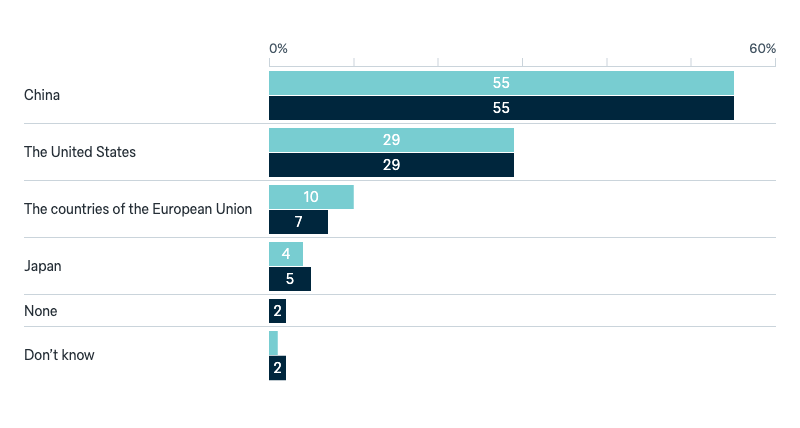
Economy and trade
World’s leading economic powers
Today, which one of the following do you think is the world’s leading economic power?
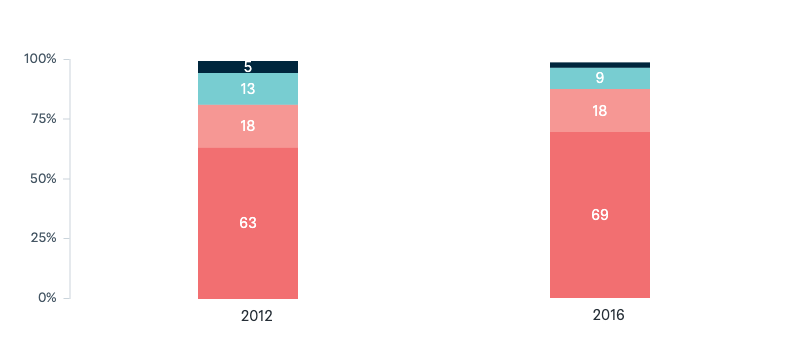
Economy and trade
Foreign acquisitions of farmland
Are you personally in favour or against the Australian government allowing foreign companies to buy Australian farmland?
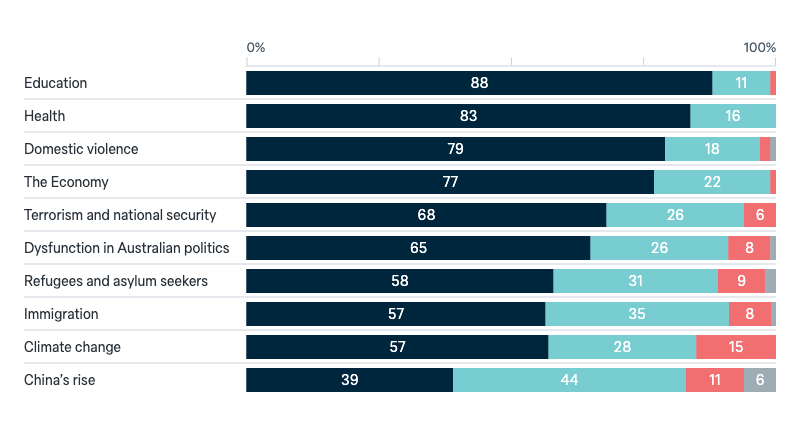
Australian foreign policy
Important issues facing Australia
Please say whether you personally think each of the following is a very important issue, a somewhat important issue, or not an important issue facing Australia at the moment:
Asked in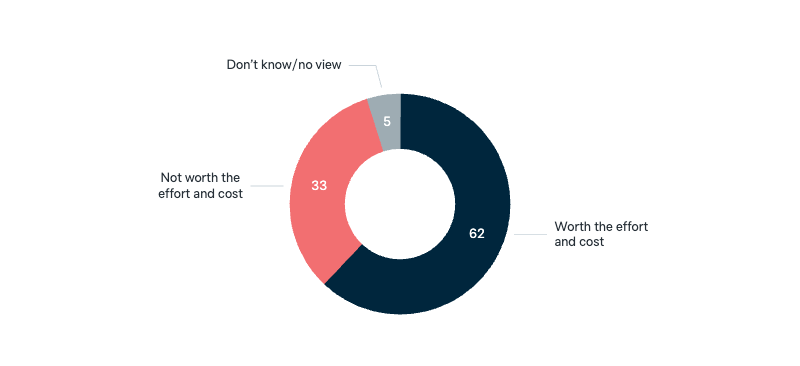
Australian foreign policy
Australia in the G20 and UNSC
Is the effort to host the G20 or hold a seat on the United Nations Security Council worth the cost for Australia?
Asked in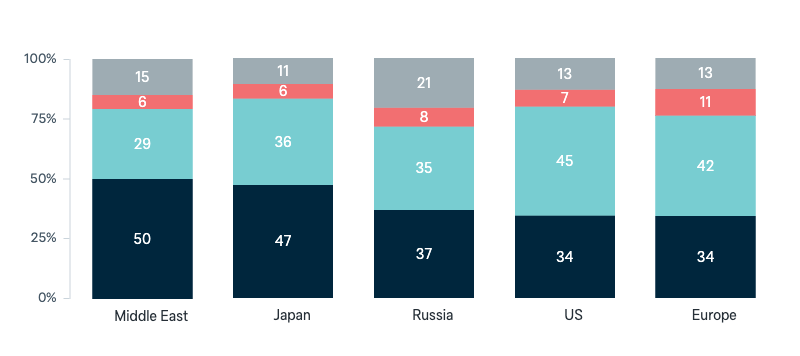
Economy and trade
Foreign investment in Australian real estate
Do you think the Australian government is allowing too much investment, about the right amount of investment, or not enough investment, from the following country or region?
Asked in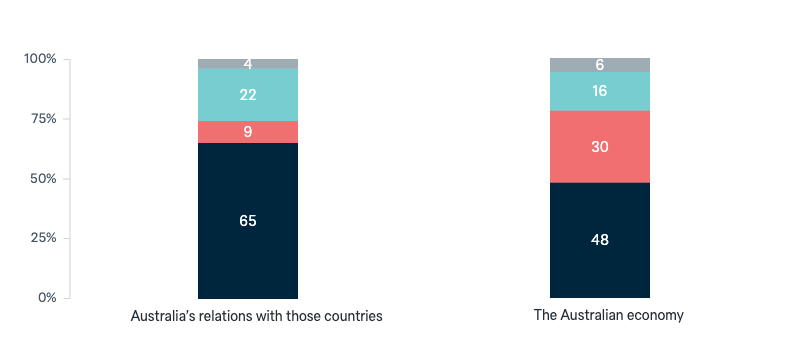
Economy and trade
North Asian free trade agreements
In 2014, Australia signed free trade agreements with Japan, Korea and China. On balance, do you personally think these kinds of free trade agreements are good or bad for the Australian economy and for Australia’s relations with those countries, or do they make no difference?
Asked in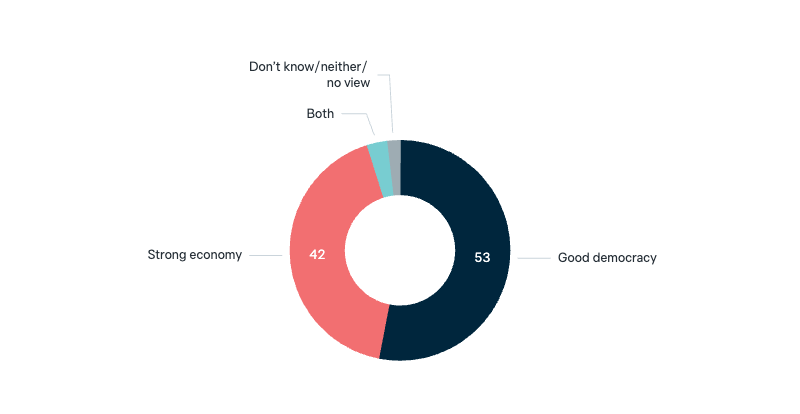
Democracy
Democracy or economy
Still on democracy, if you had to choose between a good democracy and a strong economy for Australia, which one would you personally choose?
Asked in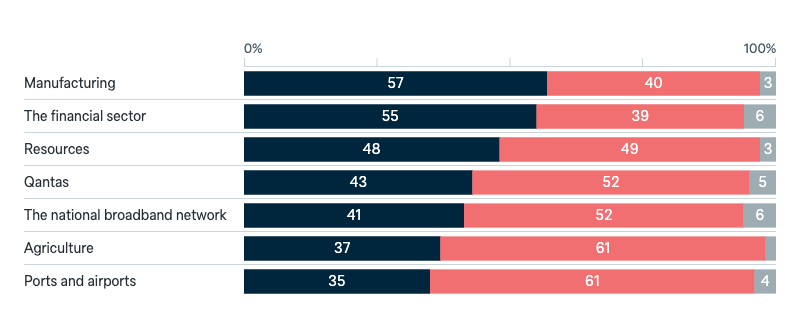
Economy and trade
Foreign investment by sector
Are you personally in favour or against the Australian government allowing foreign companies to invest in:
Asked in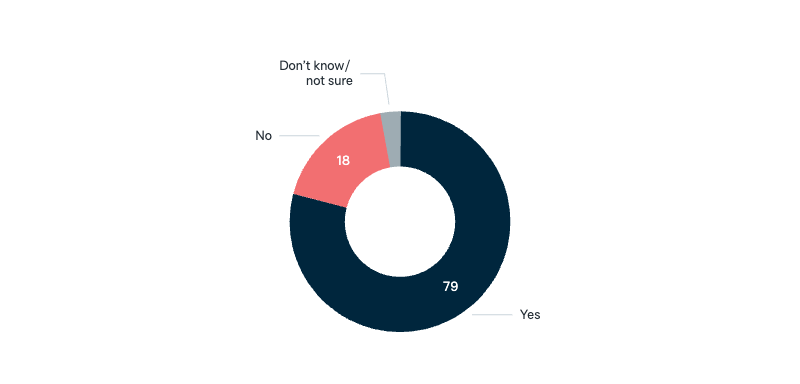
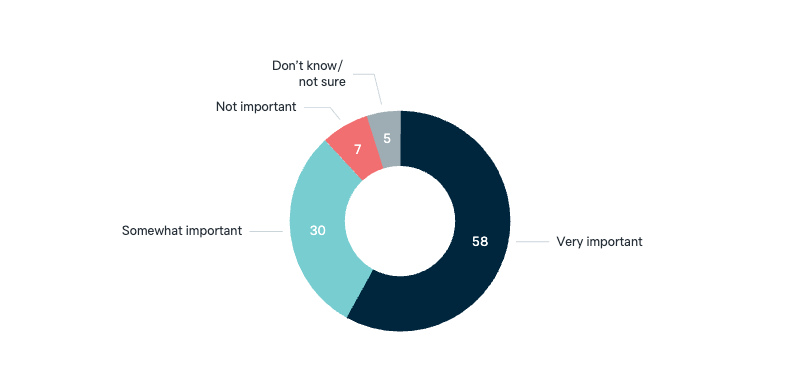
Economy and trade
Importance of Australia in the G20
Do you personally think it is important or not important for Australia to be part of organisations or groups like the G20?
Asked in
Economy and trade
Most important economies to Australia
Thinking about the economies of the United States, China and Japan, which one do you think is the most important to Australia at the moment? Which one is the second most important?

Economy and trade
Australia and the financial crisis
Thinking now about the current global economic crisis. For each of the following do you personally think it was a major reason, a minor reason or not a reason why Australia managed to avoid falling into recession.
Asked in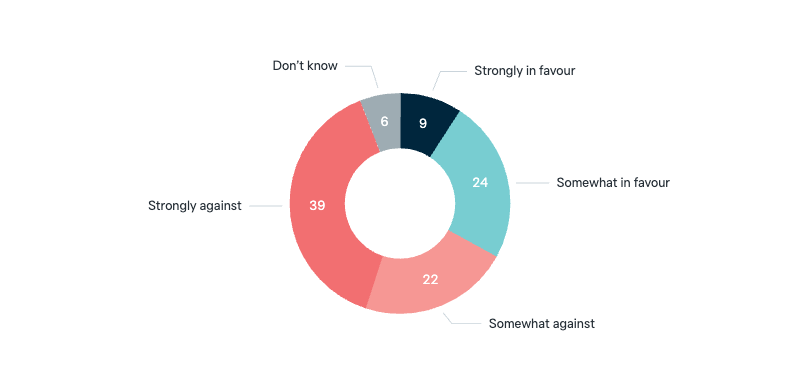
Economy and trade
Exporting uranium to India
Are you personally in favour or against Australia selling uranium to India? Is that strongly or somewhat?
Asked in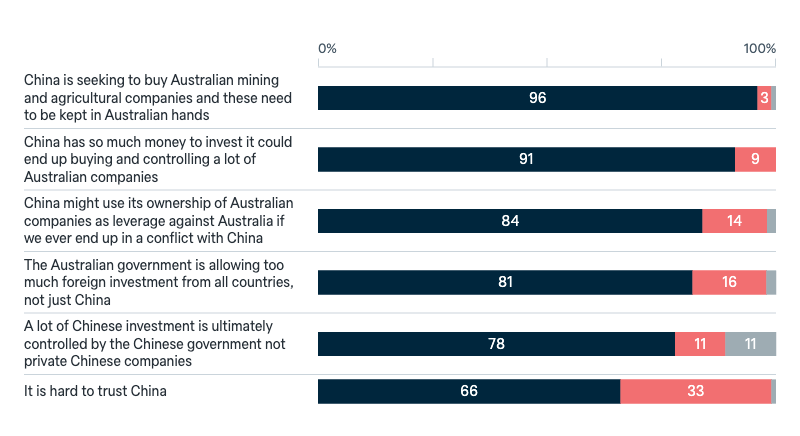
China
Reasons against foreign investment from China
Do you agree or disagree this is a reason as to why the Australian government is allowing too much investment from China?
Asked in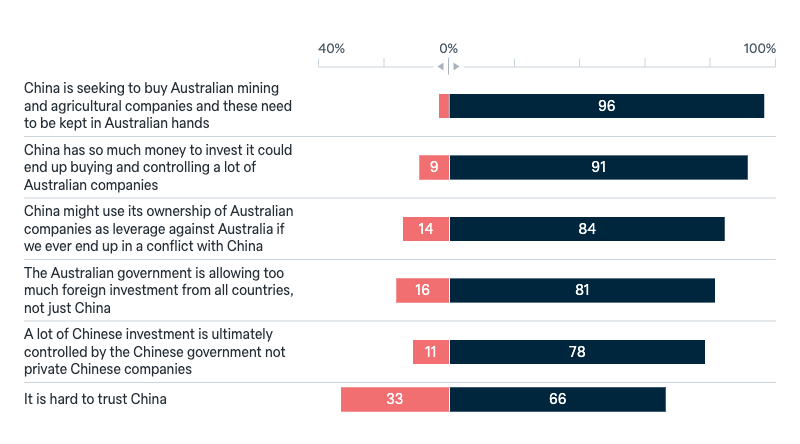
China
Reasons for reducing Chinese investment
Why do you think Australia should have less Chinese investment?
Asked in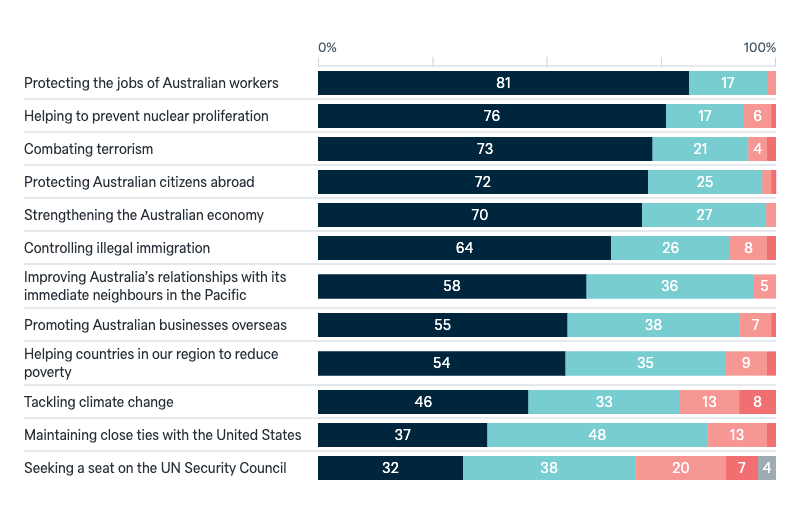
Australian foreign policy
Goals of Australian foreign policy
Thinking about what Australian foreign policy should be trying to achieve, I am going to read a list of goals, and ask you to tell me how important each one is for Australia.
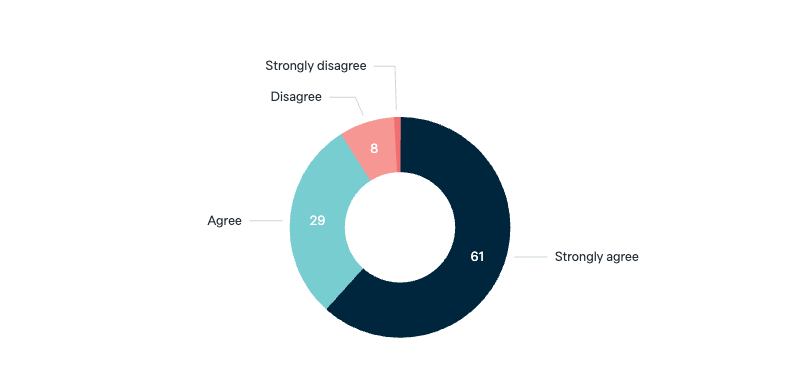
Economy and trade
Foreign investment and Australian regulation
Please say whether you strongly agree, agree, disagree or strongly disagree with the following statement.
Asked in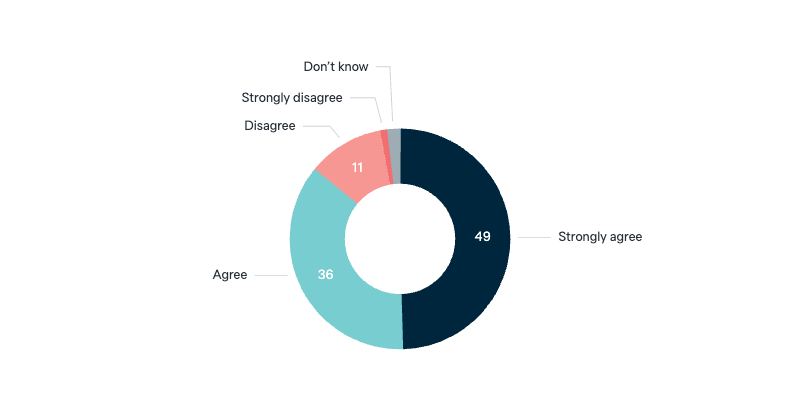
Economy and trade
Trade policy and foreign investment
Please say whether you strongly agree, agree, disagree or strongly disagree with the following statement.
Asked in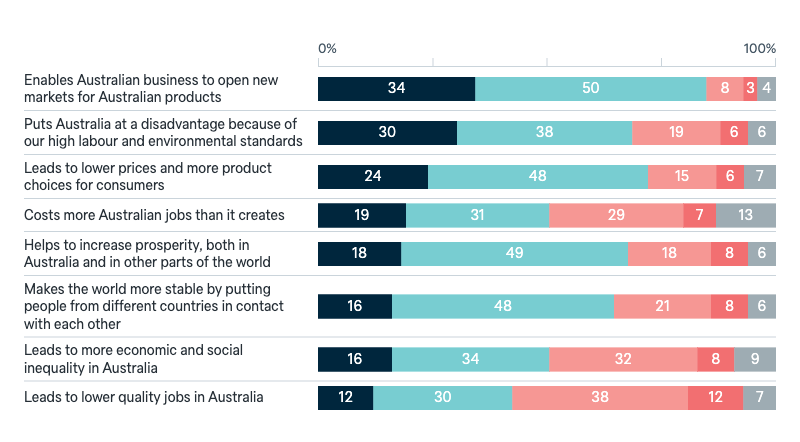
Economy and trade
Attitudes to free trade
I am going to read you some statements about moving towards freer trade.
Asked in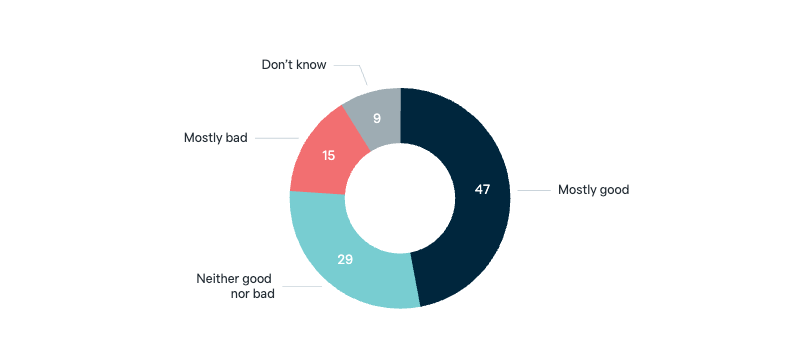
Economy and trade
Free trade agreement with Japan
On balance, do you think signing a free trade agreement with Japan would be good or bad for Australia or would it make no difference?
Asked in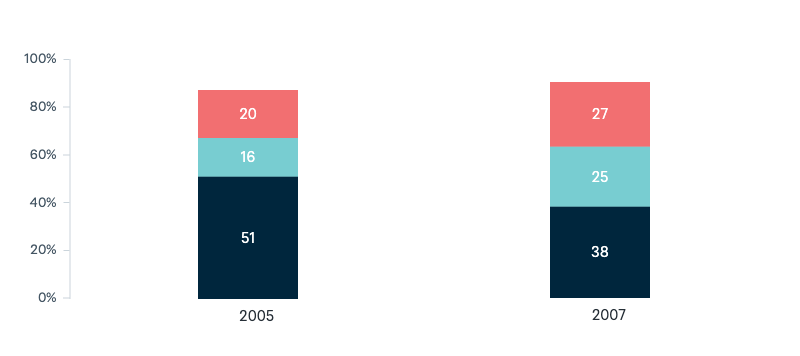
Economy and trade
Free trade negotiations with China
We are in the early stages of negotiating a free trade agreement with China. On balance, do you think signing a free trade agreement with China would be good or bad for Australia?
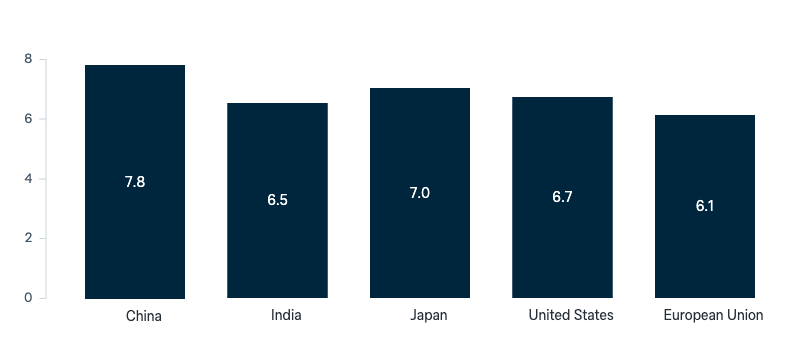
Economy and trade
Importance of other economies to Australia in the future
How important will these economies be for Australia in 25 years time?
Asked in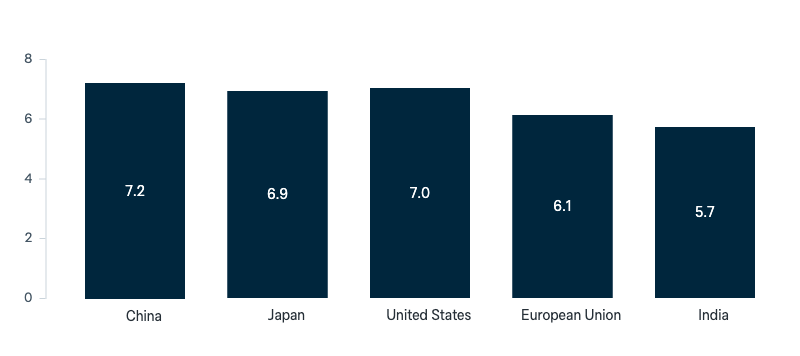
Economy and trade
Importance of other economies to Australia today
How important are the following economies for Australia at the moment?
Asked in
Economy and trade
Attitudes to international trade
Please say whether you are in favour or not in favour of each of the following approaches to international trade.
Asked in
Economy and trade
Effect of globalisation
How has globalisation affected your life? For each of the following, do you think globalisation has had a good effect overall, or a bad effect overall.
Asked in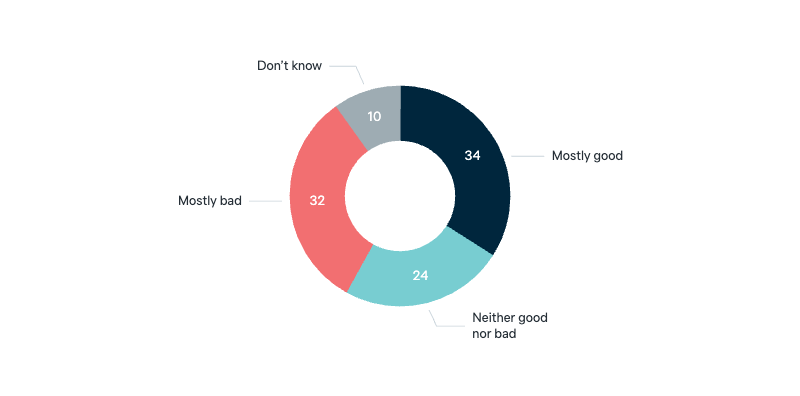
Economy and trade
Free trade agreement with the United States
On balance, do you think the free trade agreement we have signed with the United States is good or bad for Australia?
Asked in
